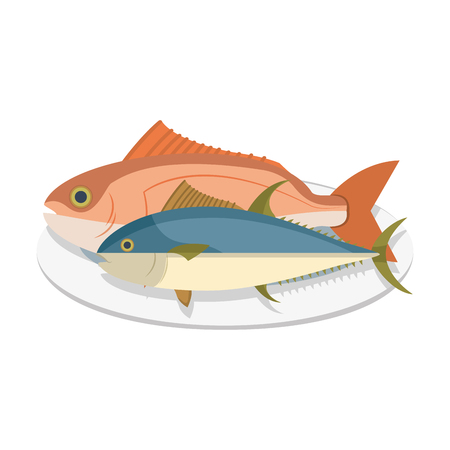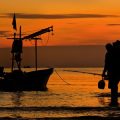Introduction: The British Sea Fishing Scene
Sea fishing competitions have long held a special place in the hearts of communities up and down the UK’s coastline. From rugged Cornish harbours to windswept Northumbrian beaches, these events draw anglers of all backgrounds, offering a thrilling blend of skill, camaraderie, and local pride. For many Britons, sea fishing is more than just a pastime; it’s woven into the cultural fabric, with generations gathering for annual tournaments that celebrate both tradition and healthy competition. Over recent decades, these contests have surged in popularity, reflecting not only the nation’s passion for angling but also a growing appreciation for Britain’s rich marine heritage. As we’ll discover, the unique spirit of UK sea fishing competitions now plays an increasingly vital role in supporting marine conservation efforts across our shores.
Conservation Rules and Modern Competition Formats
In the UK, sea fishing competitions have evolved to integrate stringent conservation measures, ensuring that the excitement of the sport aligns with marine sustainability goals. Organisers and governing bodies have implemented a suite of regulations designed to reduce the ecological footprint of competitive angling. These rules not only protect fish stocks but also promote responsible angling practices among participants.
Key Conservation Regulations in UK Sea Fishing Competitions
| Regulation | Description | Ecological Benefit |
|---|---|---|
| Catch-and-Release | Competitors are required to return fish to the sea after measuring and recording their catch. | Minimises mortality rates and allows fish populations to recover. |
| Minimum Size Limits | Only fish above a set length can be counted towards a competitors score. | Protects juvenile fish, supporting stock regeneration and long-term species survival. |
| Barbless Hooks | Mandatory use of barbless or de-barbed hooks during events. | Reduces injury to fish, facilitating safer and quicker releases back into their habitat. |
Impact on Competition Strategy and Outcomes
The integration of these regulations has transformed competitive tactics. Anglers must now focus on species knowledge, accurate identification, and careful handling techniques. The emphasis has shifted from sheer quantity to skillful fishing within environmental boundaries. Moreover, many events employ digital catch logging systems, whereby photographs of each fish alongside a competition-issued measure are submitted for verification—eliminating the need for weigh-ins that can stress marine life.
Cultural Shift Among Anglers
The widespread adoption of conservation-focused formats has fostered a culture of stewardship within the UK’s angling community. Clubs and associations actively educate members about local regulations and best practice handling methods. This not only supports marine biodiversity but also ensures that future generations can continue to enjoy Britain’s coastal waters through sustainable competitive fishing.
![]()
3. Data Collection and Citizen Science
Sea fishing competitions across the UK play a pivotal role in marine conservation by transforming recreational anglers into invaluable citizen scientists. During these events, competitive anglers meticulously record details of their catches, including species, size, weight, and sometimes even location and environmental conditions. This grassroots approach to data collection allows for a much broader and more frequent sampling of fish stocks than traditional scientific surveys can achieve alone.
Organisers often collaborate with marine biologists and conservation groups to standardise data recording methods, ensuring the information gathered is reliable and consistent. Some competitions employ digital logbooks or mobile apps to streamline the process, making it easier for participants to submit accurate records in real time. The sheer volume of data generated during these events provides scientists with a robust resource for monitoring population trends and assessing the health of various marine species around the UK coastline.
This collaborative effort between anglers and researchers supports crucial stock assessments, helping authorities identify changes in fish populations before they become critical. By involving the angling community directly in conservation science, sea fishing competitions foster a culture of stewardship and shared responsibility for the sustainability of Britain’s cherished marine resources.
Promoting Sustainable Practices within the Angling Community
One of the most significant ways sea fishing competitions in the UK contribute to marine conservation is by fostering a culture of sustainability within the angling community. By setting clear standards and guidelines for sustainable bait use, appropriate gear selection, and responsible angler behaviour, these events become powerful platforms for education and peer-led change.
Sustainable Bait Use
Competitions frequently encourage or require participants to use locally sourced, sustainable bait options. This approach minimises the risk of introducing invasive species and reduces pressure on vulnerable marine life. For example, the use of ragworm and lugworm collected responsibly from approved areas is often promoted over imported baits that could disrupt local ecosystems.
| Bait Type | Sustainability Rating | Common Guidelines in Competitions |
|---|---|---|
| Locally Collected Worms | High | Permitted with collection limits |
| Imported Shellfish | Low | Discouraged or banned |
| Artificial Lures | Variable (depends on material) | Promoted for catch-and-release events |
Gear Selection for Conservation
The choice of tackle and gear has a direct impact on both fish stocks and the wider marine environment. Many UK competitions specify hook sizes, barbless hooks, and biodegradable lines to reduce bycatch and limit habitat damage. This not only ensures fair play but also ingrains best practices among anglers.
| Gear Type | Conservation Benefit | Competition Policy Example |
|---|---|---|
| Barbless Hooks | Easier release, less injury to fish | Mandatory in most catch-and-release formats |
| Biodegradable Line | Reduces plastic pollution risk | Encouraged through bonus points or awards |
| Circular Hooks | Lowers deep hooking incidence | Recommended for specific species contests |
Peer Influence and Education Initiatives
The social nature of fishing competitions amplifies their impact as experienced anglers model responsible behaviours for newcomers. Organisers often host pre-event briefings covering topics such as safe fish handling, waste management, and habitat protection. These sessions instil respect for the marine environment while fostering camaraderie rooted in shared conservation values.
Education through Stewardship Schemes
Some clubs partner with conservation charities to run on-site workshops or distribute educational materials. Peer-to-peer learning is further reinforced through informal mentoring, where seasoned competitors guide less-experienced participants towards more environmentally friendly practices.
Summary Table: Competition-Driven Sustainable Practices
| Sustainable Practice Promoted | Main Method of Encouragement in Competitions |
|---|---|
| Sustainable Bait Use | Rules & Local Sourcing Requirements |
| Selecting Eco-Friendly Gear | Tackle Restrictions & Incentives |
| Responsible Behaviour On-Site | Peer Pressure & Pre-Event Briefings |
| Education & Mentoring Schemes | Workshops & Informal Guidance from Peers |
This collective commitment to sustainable practice ensures that sea fishing competitions serve not just as sporting events, but as influential hubs for spreading conservation knowledge throughout the UK angling community.
5. Partnerships with Conservation Organisations
One of the most effective ways sea fishing competitions in the UK contribute to marine conservation is through strong partnerships with conservation organisations. Fishing clubs and event organisers frequently collaborate with respected groups such as the Marine Conservation Society, The Wildlife Trusts, and various local authorities. These collaborations are not merely symbolic; they form the backbone of responsible angling practices and amplify conservation outcomes.
By working closely with marine conservation groups, competition organisers gain access to up-to-date scientific advice on fish stocks, protected species, and sustainable fishing techniques. This guidance ensures that competition rules evolve in line with environmental best practice, for instance by introducing catch-and-release formats or restricting the targeting of vulnerable species. In turn, conservation organisations benefit from data collected during competitions—such as catch sizes, species distribution, and water conditions—which can be invaluable for ongoing research and monitoring efforts.
Local authorities often play a mediating role, supporting initiatives that balance recreational angling with ecological stewardship. Through joint educational campaigns and beach clean-ups organised alongside tournaments, both anglers and the wider community become more engaged in protecting local marine habitats. Some events even raise funds specifically earmarked for habitat restoration or community-led conservation projects, ensuring tangible benefits extend well beyond the competition itself.
Ultimately, these partnerships foster a culture where competitive sea fishing is intrinsically linked to stewardship of UK coastal waters. They encourage knowledge sharing between seasoned anglers and marine scientists, promote responsible angling among newcomers, and demonstrate to the public that sporting interests can align positively with long-term environmental goals. As a result, every successful collaboration adds another layer of protection for Britain’s diverse marine ecosystems.
6. Raising Public Awareness and Advocacy
One of the most significant contributions of sea fishing competitions in the UK is their power to raise public awareness and drive advocacy for marine conservation. These events, often highly visible and well-publicised, attract participants and spectators from diverse backgrounds, offering a unique platform to communicate critical messages about the health of Britain’s seas. Through on-site educational stands, interactive workshops, and live demonstrations, organisers can directly engage attendees with information about sustainable angling practices, local marine biodiversity, and the threats facing UK waters such as overfishing, plastic pollution, and habitat loss.
Moreover, media coverage of these competitions—whether in local newspapers, regional television, or social media—extends their reach far beyond the quayside. Stories highlighting responsible catch-and-release protocols or partnerships with marine charities reinforce positive attitudes towards conservation among a wider audience. By showcasing the passion and stewardship of Britain’s angling community, these events challenge outdated perceptions of fishing as an extractive pastime and instead present it as a vital stakeholder in marine protection efforts.
This increased visibility also helps foster a sense of shared responsibility within coastal communities and among recreational anglers nationwide. As more people witness the tangible links between healthy fish stocks and thriving local economies, support grows for policy changes such as stricter licensing regulations or the establishment of new marine protected areas. In this way, sea fishing competitions act not only as sporting fixtures but also as powerful catalysts for grassroots advocacy—promoting both enjoyment of the sport and commitment to safeguarding UK waters for future generations.
7. Conclusion: The Future of Competitive Sea Angling and Conservation
As we look ahead, the relationship between competitive sea angling and marine conservation in the UK stands at a pivotal point. While current practices show that competitions can effectively promote sustainable fishing and environmental awareness, challenges remain. One ongoing issue is ensuring consistent adherence to catch-and-release protocols and accurate recording of catches across all events, regardless of location or organiser. There is also the matter of engaging more anglers with marine conservation science, making data collection not just a requirement but a valued part of the competition experience.
Opportunities abound for further integration of conservation objectives within sea angling tournaments. By collaborating closely with marine biologists, local authorities, and conservation charities, organisers can develop even more robust frameworks for sustainable fishing. Innovations such as digital catch reporting apps, mandatory educational briefings before each event, and incentives for environmentally responsible behaviour could become standard features at British sea fishing competitions.
Ultimately, the future success of both the sport and our marine ecosystems will rely on continued dialogue between anglers and conservationists. Maintaining the delicate balance between competitive spirit and environmental stewardship is no easy feat, but it is essential if we are to preserve the rich diversity of UK coastal waters for generations to come. By rising to these challenges and embracing new opportunities, the British sea angling community can remain at the forefront of sustainable sportfishing—demonstrating that passion for competition need not come at the expense of our precious marine resources.


